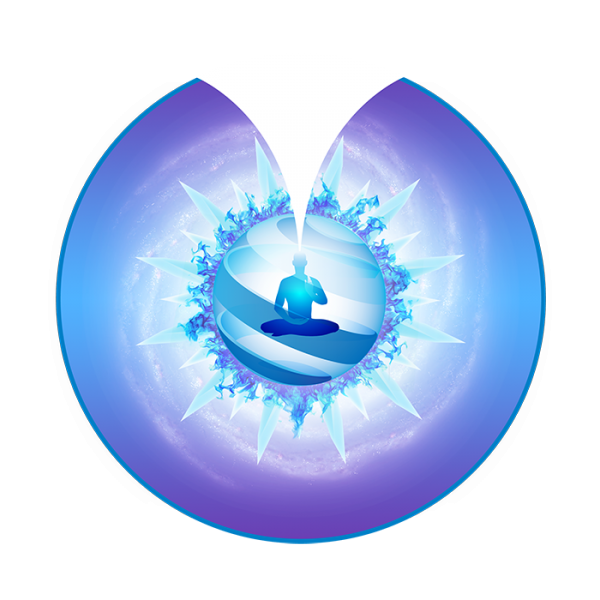Sleep Paralysis – Why you remain paralyzed when waking up from sleep (part 1)

Page 1 of 3
In today’s lesson I will tell you about Sleep Paralysis, I will explain why it is scary to those who don’t know what it is, why it happens, and also why it can be very useful when you learn how to use it as you prefer.
First of all sleep paralysis is a body paralysis that happens naturally every time we fall asleep, in fact its name comes from the fact that it happens during sleep. It obviously doesn’t happen only at night but every single time you sleep, regardless of whether it be during the day or the night, the morning or the afternoon, the paralysis happens so that your body can stay still while you’re sleeping. In fact sleep paralysis is a natural mechanism, as it’s the total paralysis of the body which protects you from those movements you might make while sleeping. First of all paralysis keeps you from making sudden movements and hurting yourself while you’re sleeping, for example by hitting your head or falling off your bed. It also protects you from all those physical movements you might make while dreaming, so that, thanks to the paralysis, while you are dreaming of running you aren’t actually physically running but you’re still in your bed because the body is paralysed. As soon as your alarm goes off – or as soon as you spontaneously wake up – the body will “unlock” itself from the paralysis and you’ll be able to move freely, just like it happens every morning.
However, when we talk about sleep paralysis we refer to a particular situation that can occur in stressful periods of life and/or in periods in which we are victims of presences which aren’t immediately recognisable by an untrained eye. It’s a condition that can take place for a short time before falling asleep or right after waking up, when the body remains paralysed for a few seconds – more rarely for a few minutes – even if the mind is already completely awake and clear. The experience of sleep paralysis occurs when the body is too tired and it could happen that just before falling asleep – or before waking up completely – the body goes into paralysis even if the person is awake and can control small movements of the body such as opening the eyes and moving them, with some difficulty. Usually sleep paralysis is caused by stress or too much tiredness, in fact too much fatigue can cause these small problems too. It has surely happened to you sometime in your life that you went to bed extremely tired and, even if you were very sleepy, you couldn’t fall asleep. This is because sometimes too much tiredness can paradoxically cause a brief insomnia, therefore if you are too tired you might have an initial difficulty in falling asleep. Sometimes because of very stressful periods in which you think too much about your personal problems (i.e, a stressful period of your life) it can happen that you go into sleep paralysis just before falling asleep or just before waking up. During sleep paralysis (which lasts a few minutes maximum) you open your eyes and wake up completely and yet your body doesn’t respond, as if it is blocked, motionless, and not following your command.
Sleep paralysis is a very stressful situation for many people because they don’t know what is happening. They panic, try to scream, try to force movements, but all those brusque attempts to move will only make the paralysis worse and can even cause physical pain. Sleep paralysis is a protection mechanism of the body. Thus, the harder you try to move the stronger the paralysis gets, so as to prevent you from “hurting yourself while sleeping”. If you aren’t aware of what is happening it’s normal to get scared because you wake up just like you do every morning, but you suddenly realize that the body is blocked, and that it doesn’t respond to your movement signals, thus you start thinking the worst… but there’s nothing to worry about! You won’t be paralysed for the rest of your life, nor has anything bad happened to your body while you were sleeping!
But in that moment it’s normal to get scared because you wake up in your bed without being able to move any part of your body, except your eyes, and little else… and all this with great difficulty.
Page 2 of 3
You can learn to get out of sleep paralysis by becoming aware of the movements that would hinder your body more, and of the movements that would help you to unlock it. It’s also important to know the reason why it can be very useful to make the most of the opportunity of sleep paralysis.
First of all, during paralysis, trying to scream and calling for help comes natural. This physical effort, however, only hardens the body even more because according to the defence system you are trying to scream while you sleep, so you are blocked by the natural defences of your body. It’s really important to understand that the paralysis isn’t dangerous in any way, you don’t risk death by paralysis, or suffocation, or the permanent loss of control of your body. Paralysis is absolutely natural, and it has happened every single night throughout your whole life, but you just never noticed it because you were sleeping. Trying to move abruptly to get up or trying to turn your head also risks worsening the physical block as it’s recognized by the body’s natural defence as an attempt to move while sleeping, therefore you become blocked with greater force. If you become aware of the fact that paralysis isn’t dangerous at all but that it’s completely normal (and that it doesn’t last forever but only for a very few moments) you understand that moving only makes things worse and is the last thing that should be done. For this reason it is essential to stay relaxed and to not force the neck, the back, or any part of the body, because, by doing so, you would risk causing yourself real physical pain. During sleep paralysis it’s essential to keep relaxed because only in this way will the body understand that there is no reason to go into defence mode, as there is no danger. If you move, the body will strengthen the defence mechanism because it will sense danger, therefore it will stiffen and cause pain; but if you relax, the body will understand that there is no danger and therefore no reason to stiffen: this way it will be easier to get out of the paralysis.
Of course it’s easier said than done. When you find yourself paralysed in bed it’s normal to feel oppressed, and to try to move and scream in fear, but in this way you will only make things worse, and you’ll live the experience of sleep paralysis in the absolute worst way, instead of exploiting it as a positive opportunity. This is because sleep paralysis, above being natural, is also a great advantage to manage to perform interesting techniques such as Astral Travel, where it can be used as a springboard that greatly simplifies this experience. Becoming familiar with the paralysis is great because, above being able to stay calm when it occurs, you can also learn to use it for the advantages it offers. In fact, during the paralysis it is much easier to have an O.B.E. because most of the work has already been done: the body is already in paralysis and you just have to get out of it! Of course there are other reasons why you might end up in sleep paralysis, but I’ll explain them in the next lesson.
Here are some important tips if you wish to get out of paralysis in a short time (in case you happen to get into sleep paralysis and you don’t intend to use it for Astral Travel).
First of all, don’t get either physically or mentally agitated, but stay calm and relaxed. Breathe calmly without getting anxious or afraid of not being able to breathe easily. By panicking you will only make breathing more difficult, while by staying calm you would be able to do it normally. So don’t breathe anxiously, but breathe as you always do; calmly, without being overwhelmed by oppressive feelings. The body is blocked, so if you try to expand your belly or chest too much, to breathe more deeply, you will realize that it’s more tiring than it is to breathe normally, so don’t agitate! Instead of trying to scream and wasting your energy to perform an action that won’t be useful to you (since you won’t be able to scream, and you will make the blockage worse!) relax completely and focus on breathing prana.
Page 3 of 3
If you breathe prana you’ll see how the paralysis will suddenly unlock, as you just needed better relaxation (powered by healing energy) to allow yourself to get out of paralysis faster.
It’s really important not to strain your spinal column too much and thus not to move your neck or your back… because trying to force movements in those areas during sleep paralysis might provoke a sharp pain. There’s no reason to cause any pain to yourself while you are comfortably lying in your bed, so don’t panic and just breathe and relax because you’ll certainly get out of the paralysis. You just need to calm down. Don’t try to raise your head or to move your neck because those are very delicate areas, and if you strain too much when they’re blocked you might get pains which will stay for the whole day, or even longer. So be gentle with your neck, keep it still and don’t risk making sudden movements. The same rule applies to the back, so try to keep it rested and don’t push it up while trying to get up from bed because it might cause physical pain. Instead, try to keep it relaxed on the bed.
Now you know that staying calm and relaxed will allow your body to get out of sleep paralysis in a very short time, but if you wish to learn to use the paralysis to have an astral travel experience I suggest you read the following articles on that subject. In the meantime remember to breathe prana when you happen to wake up in paralysis because it will help you to relax your body and your mind more easily, and thus to get out of the paralysis quickly.
If you found this lesson useful I invite you to share the link to this article with your friends or on your Social profile, reminding them of the source of those teachings: The Dimensional Consciousness Academy. Thank you!
End of page 3 on 3. If you liked the article, comment below to describe your feelings while reading or practicing the proposed technique.
This document is the translation of the original article (https://www.accademiadicoscienzadimensionale.com/archives/7515) on the Dimensional Consciousness Academy website.
This document belongs to https://www.accademiadicoscienzadimensionale.com/. All rights are reserved, any unauthorised use, total or partial, of the contents in the present portal is forbidden, including memorisation, reproduction, reworking, diffusion or distribution of the contents through any technological platform, support or telematic network without previous written authorisation by Dimensional Consciousness Academy. Any violation will be legally prosecuted. ©
